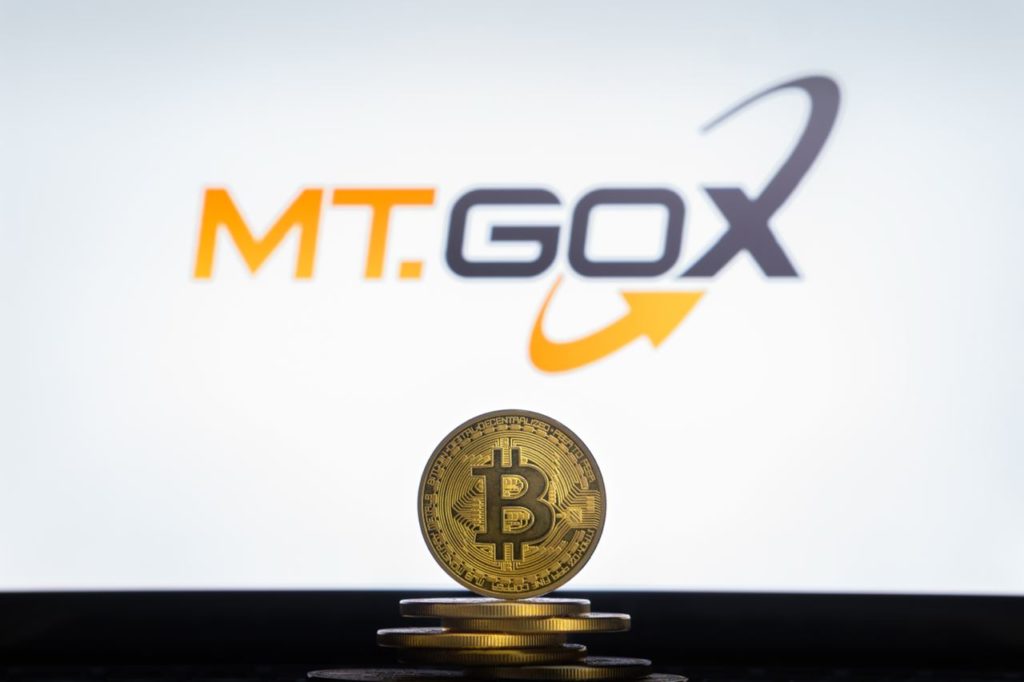Mt. Gox Moves Over $480 Million in Bitcoin Amid Market Surge
12.12.2024 16:30 1 min. read Alexander Stefanov
In recent developments, a wallet tied to the defunct Mt. Gox exchange transferred over 2,300 Bitcoin, equivalent to around $234 million, to an undisclosed address early on Thursday.
This move follows Bitcoin’s recent climb past $100,000, driven by optimism surrounding potential rate cuts from the Federal Reserve following the latest inflation report.
This transaction is part of a larger series of movements this month. On Wednesday, over 2,600 Bitcoin, valued at approximately $255 million, was moved from the Mt. Gox-associated wallet to several different addresses. Notably, $10 million of the transfer ended up with the over-the-counter (OTC) trading firm B2C2, with the remaining funds spread across other addresses.
Earlier this month, Mt. Gox made headlines with two significant Bitcoin transfers — one on December 5th, where $2.4 billion worth of Bitcoin was moved, followed by a $350 million transfer the next day. These actions leave the Mt. Gox wallet with roughly 36,000 BTC, which is valued at around $3.6 billion.
While the reason for these transfers remains unclear, similar past actions have often preceded repayment processes for creditors, typically facilitated through well-known exchanges like Bitstamp or Kraken. Mt. Gox, which has been embroiled in repayment plans for years, recently pushed back its repayment deadline by a year, now scheduled for October 31, 2025.
-
1
Arthur Hayes Sees Trouble Ahead for Bitcoin as Global Tensions Rise
12.06.2025 21:00 2 min. read -
2
Why Michael Saylor Bet on Bitcoin During the COVID Cash Crisis
12.06.2025 19:00 2 min. read -
3
Nasdaq-Listed Mercurity Aims to Join Bitcoin Treasury Trend
13.06.2025 9:00 1 min. read -
4
Whale Leverages $30M on Bitcoin: Is a Parabolic Move Coming?
11.06.2025 21:00 1 min. read -
5
Pakistan Turns Unused Power Into Bitcoin and AI Infrastructure
13.06.2025 22:00 1 min. read
UniCredit to Launch Structured Product Tied to BlackRock’s Spot Bitcoin ETF
European banking giant UniCredit is preparing to offer its professional clients a new investment product linked to BlackRock’s spot Bitcoin ETF (IBIT), according to a report by Bloomberg.
American State Bans Crypto Investments and Payments in Sweeping New Law
Connecticut has officially distanced itself from government adoption of digital assets like Bitcoin. On June 30, Governor Ned Lamont signed House Bill 7082 into law, placing sweeping restrictions on how the state and its agencies can engage with cryptocurrencies.
Strategy Boosts Bitcoin Holdings to 597,325 BTC with Latest Purchase
Bitcoin giant Strategy has added another 4,980 BTC to its reserves in a purchase worth approximately $531.9 million, according to Executive Chairman Michael Saylor.
Veteran Trader Peter Brandt Shares Simple Wealth Strategy with Bitcoin at Its Core
According to renowned market veteran Peter Brandt, trading isn’t the path to prosperity for the vast majority of people.
-
1
Arthur Hayes Sees Trouble Ahead for Bitcoin as Global Tensions Rise
12.06.2025 21:00 2 min. read -
2
Why Michael Saylor Bet on Bitcoin During the COVID Cash Crisis
12.06.2025 19:00 2 min. read -
3
Nasdaq-Listed Mercurity Aims to Join Bitcoin Treasury Trend
13.06.2025 9:00 1 min. read -
4
Whale Leverages $30M on Bitcoin: Is a Parabolic Move Coming?
11.06.2025 21:00 1 min. read -
5
Pakistan Turns Unused Power Into Bitcoin and AI Infrastructure
13.06.2025 22:00 1 min. read


